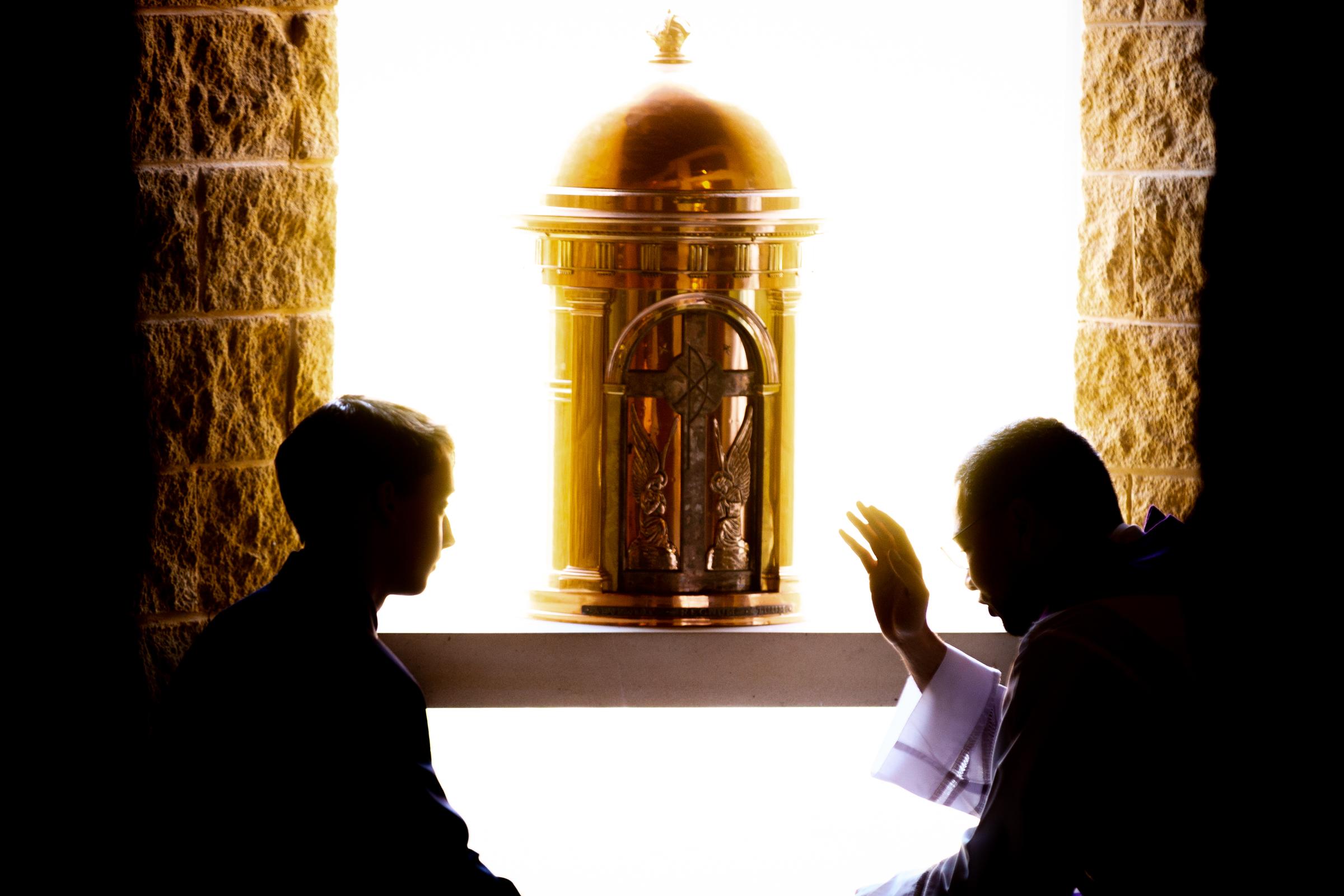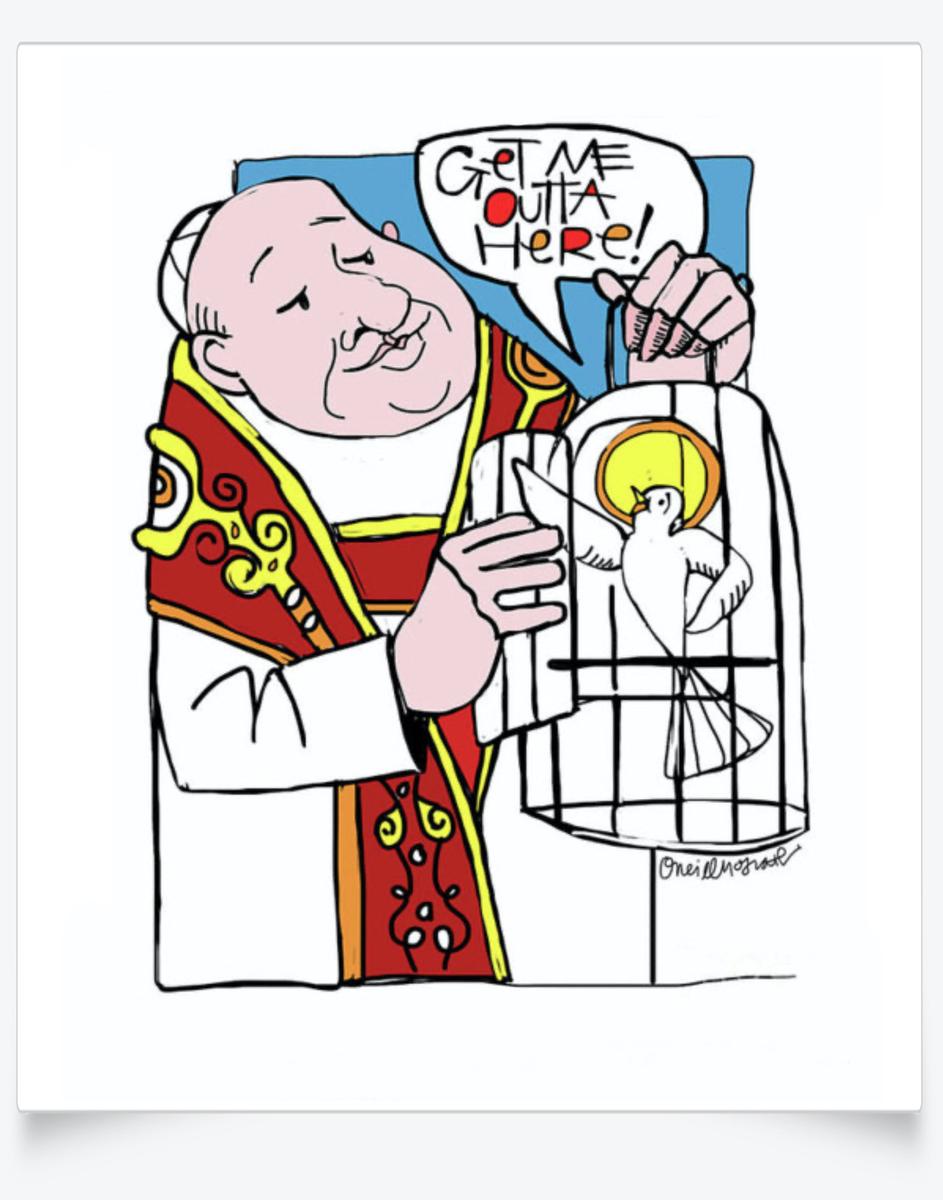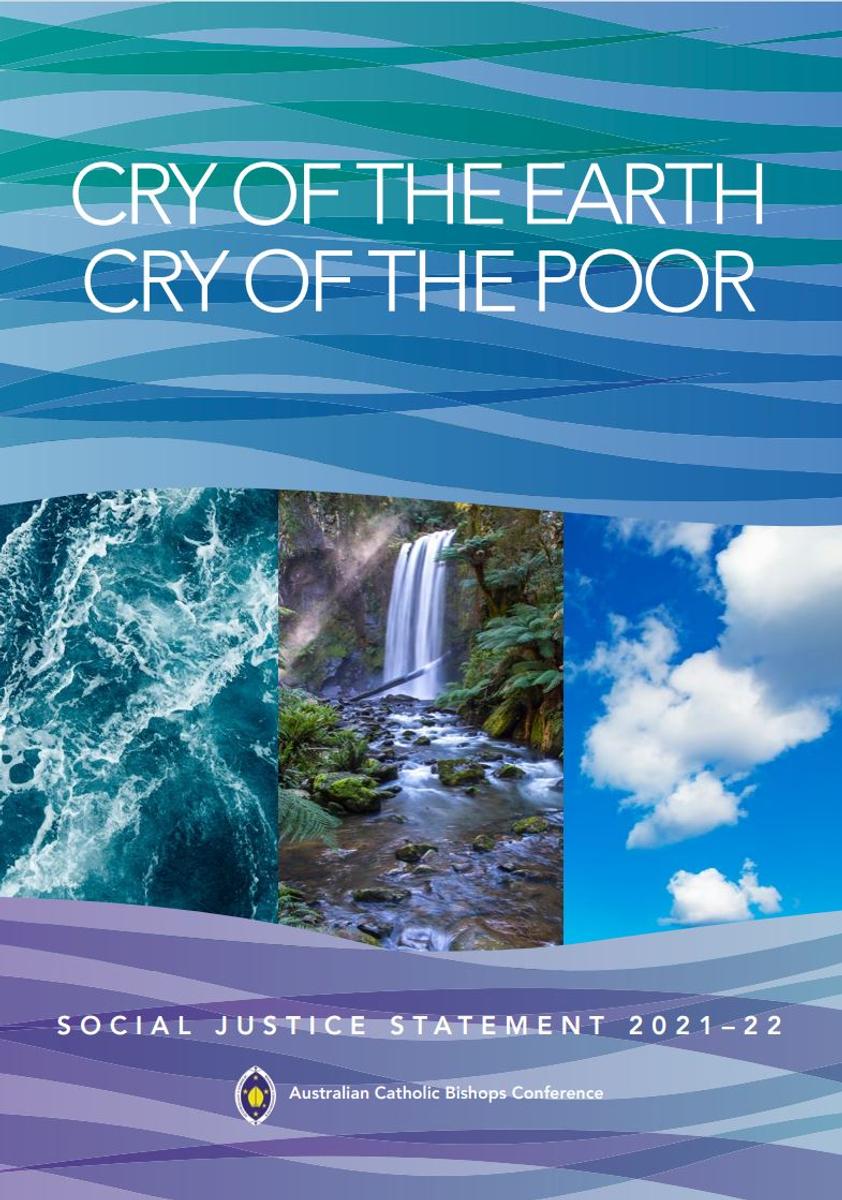Liturgy

Community Mass
Community Mass will be prepared by students in Year 8 next Friday. Primary and Secondary families are al invited to join our community celebration and, after Mass, to enjoy coffee and conversation in the Circle of Friends Café. All are welcome – whether regulars or newcomers!
Community Mass details
- College Chapel
- Fridays in term time
- Starts: 8:00am and concludes 8:30am
Good News for Feast of Pope Saint John XXIII
This reflection on the life of Angelo Roncalli/Pope John XXIII, by Bill Huebsch, is from a longer article written at the time of John XXIII’s canonisation in April 2014.[1] It is a reminder of the rich heritage of our College and the ‘optimistic vision of renewal of tradition, faith, service and openness’ on which the College was founded.[2]
The Accidental Saint
Angelo Roncalli was really a very common fellow. His personal gifts and weaknesses were ones that you or I might possess. He did well in school but he was no star. He did not own big homes or have a stunning physique. He was not one of the world's great musicians; he was not a leading theologian in his day; and he always struggled to keep his weight under control. His worldview resulted from being raised by a large Catholic farm family, hardworking but quite average. He sounds like any one of us, doesn't he? And yet, he is a saint. What does this mean in his life and in ours?
In 1907, Roncalli gave a lecture at the seminary in his home diocese of Bergamo in northern Italy. In it, he gave a prophetic description of what it means to be a saint. We tend, he said in that speech, to make saints larger than life, more like figures in a movie or novel than like your neighbours down the street. Saintliness actually results, he said, from learning the art of self-giving love. It flows from dying to self, from laughing at one's own foibles and humbly enduring the foibles of others. Saints aren't so much superstars of holiness as humble sinners, ready to allow God to love them just as they are.
John XXIII’s humility allowed him to accept God nudging him in his life. Allowing himself to be divinely nudged is also a major element of his saintliness. The idea of calling the Second Vatican Council, for example, came to him, he said, "like a flash of heavenly light." The idea emerged in prayer and he trusted it.
John felt God was nudging him to lead the church to greater overall unity, and with that in mind, he invited the leaders of the Anglican, Protestant and Orthodox churches. They came because they sensed the love with which they had been invited. (Regrettably, and a sign of those times, there were no "sisters" among these invited guests, and it would take additional nudging from the Holy Spirit until Catholic women were finally invited to the council in September 1964.)
Vatican II was for John XXIII a response to God nudging him to reform and update the church, and to draw all Christians into greater unity for the sake of humankind and world peace. Like the apostles on the eve of Pentecost, he anticipated that something grand was about to unfold. Little did he know that the Holy Spirit would sweep into the church with such force.
Vatican II, under his leading hand, was a gathering in St. Peter's Basilica of the world's Catholic bishops, but it was also a gathering that every day of the council brought tens of thousands of men and women religious, laypeople and other visitors into St. Peter's piazza outside that basilica. The bishops did not act alone; they, too, were nudged by the Spirit working through both John and those crowds.
At the centre of it all, with peace and tranquillity, stood the amiable and humble John. He was a bighearted man and a man of God, who had gained the confidence and affection of people everywhere. And why? Because when people encountered him, they encountered his loving heart. His eyes twinkled with happiness, his focus never left his visitor, and his lips offered only affirmation and affection. If you were an underpaid Vatican employee, the pope himself took your part. If you were outside the church, he reminded you how much the church loved you. If you were a nonbeliever, he offered you his friendship.
Such was John XXIII. He was one who sought what unites us and not what divides us. He believed that this would lead to peace. He was a priest, yes, but first he was a fellow human being, himself on the journey of faith. He was able to speak a word of comfort to everyone without a hint of self-consciousness.
On the feast of Christmas one year at St Peter's, he told the world that [he would like] "to linger at the tables of the poor, in workshops, in places of study, close to the beds of the sick and the elderly, in all places where [people] pray and suffer and work for their needs and for others…I would like to place my hands on the heads of little children, to look into the eyes of young people, to encourage mothers and fathers in their daily duties. To everyone, I would like to repeat the message of the angel: ‘Behold, I bring you tidings of great joy: a saviour is born to you.’ With these simple words, he catechised the world about the feast of Christmas. He made it possible to believe that Christ loves us and that we are called to love him and to love each other. John broke through the chatter of the world and people heard in his message a call addressed to their better selves.
His death in 1963 had a strong impact on people everywhere, believers and nonbelievers alike. Throughout the world, everyone mourned. Patriarch Alexis of the Russian Orthodox church called his people to prayer. The rabbi of the Sephardic synagogue in Paris introduced a prayer for John's intention in the office of the Sabbath. The prisoners at Rome's Regina Coeli prison, where he had visited on his first Christmas in the Vatican, sent John this message: "With an immense love, we are close to you."
Perhaps that says it all.
[1] https://www.ncronline.org/news/vatican/john-xxiii-accidental-saint
[2] https://www.johnxxiii.edu.au/view/our-history/history-college-founders
Cry of the earth, cry of the poor
The Australian Catholic Bishops’ Office has released the 2021-2022 statement, Cry of the Earth, Cry of the Poor. focused on ecological conversion. It is an invitation to respond to Pope Francis’ call towards total ecological sustainability. The 20-page statement is illustrated and very readable.


